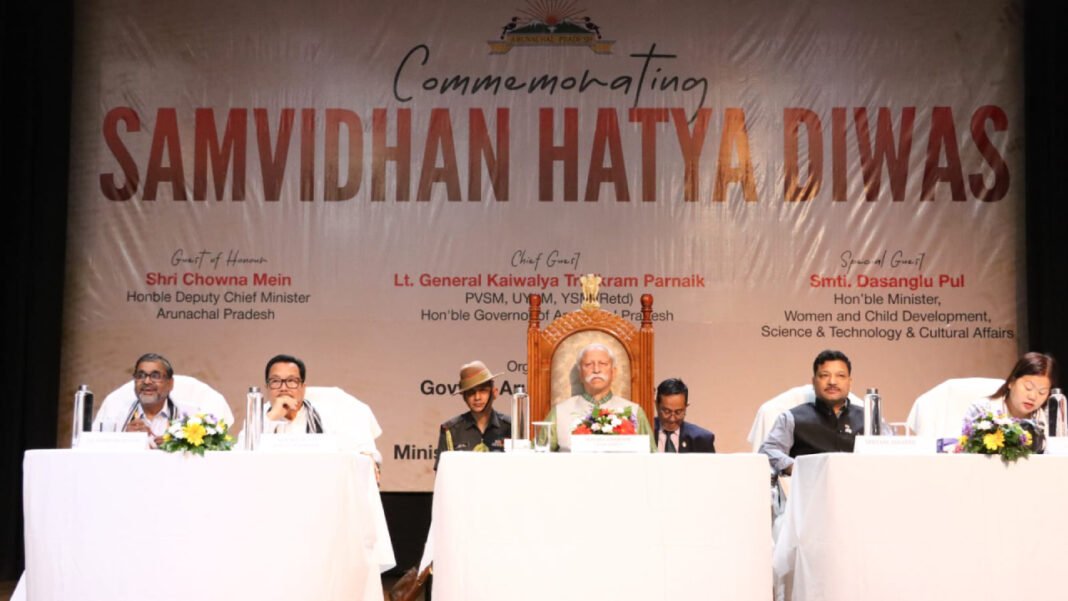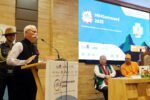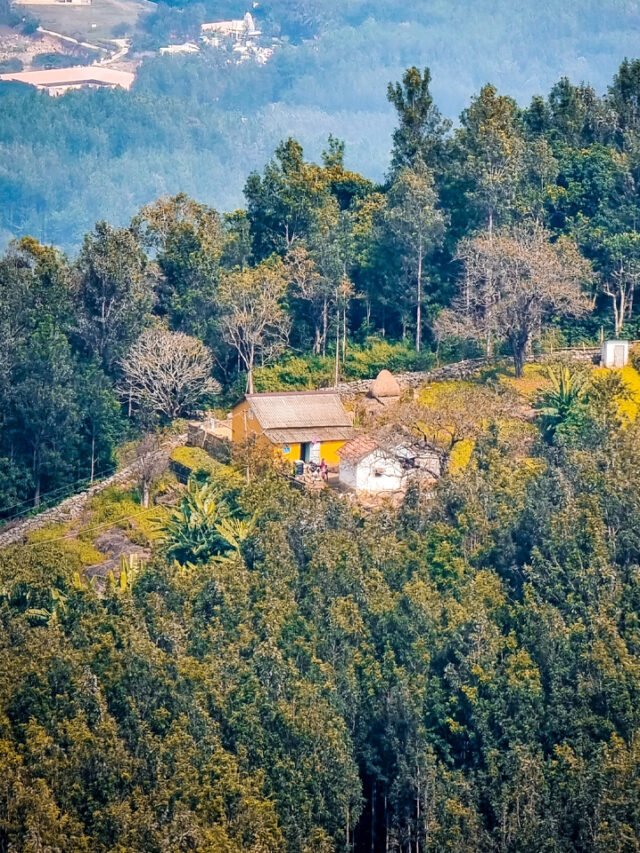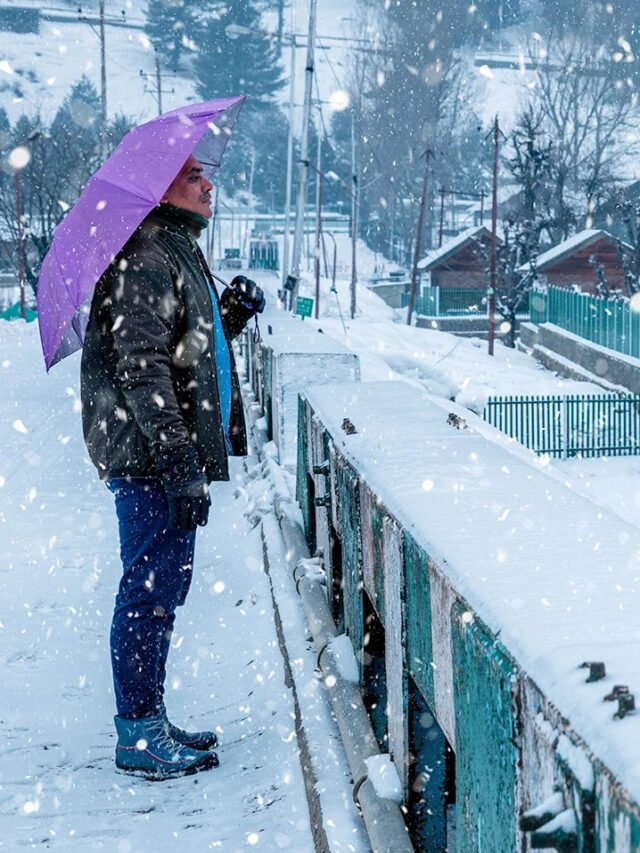HT Correspondent
ITANAGAR, June 25: Marking the 50th anniversary of the imposition of the Emergency in India, a solemn event was held at DK Convention Hall in Itanagar to observe Samvidhan Hatya Diwas, or Constitution Killing Day.
The event was led by Arunachal Pradesh Governor Lt General K T Parnaik (Retd), PVSM, UYSM, YSM, and deputy chief minister Chowna Mein, and was attended by a host of dignitaries, government officials, and members of the public.
According to an official statement, the observance served as a poignant reminder of the 21-month-long Emergency declared on June 25, 1975—widely regarded as one of the darkest periods in India’s democratic history.
The gathering aimed to educate the public, especially the youth, about the grave constitutional and civil liberties violations during that time, and to reinforce the collective responsibility of safeguarding democratic values.
In his address, deputy chief minister Chowna Mein described the Emergency as a critical lesson in the fragility of democratic institutions when unchecked power overrides constitutional norms.
“June 25, 1975, is not just a date—it is a stark reminder that silence in the face of injustice equates to complicity,” Mein said.
He stressed that while the Constitution of India remains a robust document, its ideals only endure when actively defended by citizens, institutions, and leaders alike.
Quoting Prime Minister Narendra Modi, the Deputy CM reiterated that the Emergency stands as an “indelible blot on India’s democracy,” arising from the misuse of power.
He noted that while the Emergency was imposed in Delhi, its consequences rippled across the entire country—including the Northeast.
“Even distant regions like Arunachal Pradesh and Assam were not spared. Leaders were imprisoned, voices were stifled, and civil rights were suspended,” he said.
Highlighting the widespread impact of the Emergency, Mein pointed out that over 1.1 lakh people were detained across India under arbitrary charges, many without trial.
“It is important to remember that fundamental rights are not privileges handed down by any government—they are inalienable and non-negotiable. The Emergency was a blatant assault on those rights,” he said.
The Deputy CM also lauded the historic resolution passed by the Lok Sabha in June 2024, which formally condemned the Emergency and designated June 25 as Samvidhan Hatya Diwas.
He noted that this official recognition underscores the need to preserve democratic memory and ensure that future generations are never allowed to forget the cost of constitutional subversion.
Governor Parnaik, in his remarks, also stressed the importance of eternal vigilance in a democracy.
He called on institutions and citizens to stay informed and actively participate in the preservation of constitutional integrity.
“The Emergency period is a crucial chapter that must be studied and remembered—not to dwell on the past, but to protect the future,” the Governor said.
The event was attended by minister Dasanglu Pul, speaker Tesam Pongte, deputy speaker Kardo Nyigyor, MLAs, chief secretary Manish Kumar Gupta, mayor Tame Phassang, secretary of cultural affairs Mamata Riba, senior officials, students, and members of civil society.
The commemoration included documentary screenings and discussions on constitutional values, with a special focus on the role of the judiciary, media, and citizen movements during the Emergency.
A moment of silence was also observed to honour those who endured imprisonment or made sacrifices in the fight to restore democracy.
The programme concluded with a collective pledge to uphold the values of the Constitution, protect democratic institutions, and remain vigilant against any threats to India’s democratic fabric.












